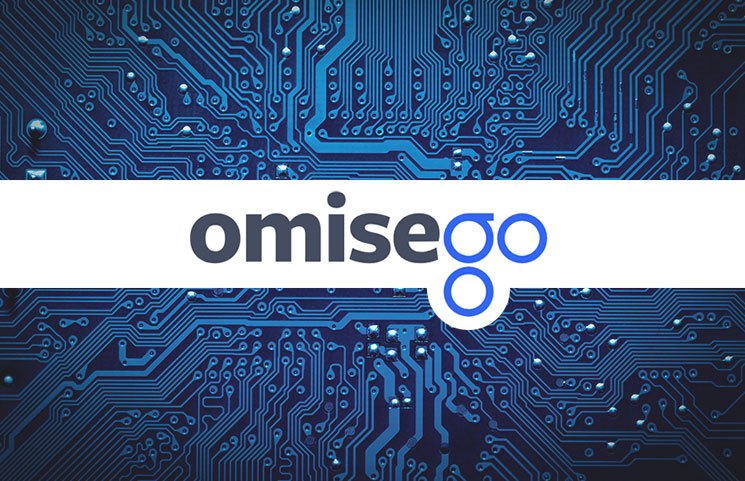The abbreviation of OmiseGo’s cryptocurrency, OMG, might seem funny at first, but the company behind it sure isn’t joking around. Ambitious as they are, the team that has created OMG aspires to revolutionise the financial dynamics in Southeast Asia. By disrupting the existing financial institutions in this region, they want to gain market share and momentum with their upcoming decentralised exchange and transaction platform. The Thai department of global superstar McDonald’s already understands the value of OmiseGo and has announced to start using it as a payment channel. McDonald’s Thailand alone has 240 locations and it’s unlikely that they will be the only subsidiary, or the only multinational that will start using OmiseGo.
The company behind Omisego, Omise, commenced operations in 2013 in Bangkok, Thailand. Omise offers payment services for individuals and businesses across Asia. Currently, Omise has more than 130 employees working in Thailand, Indonesia, Japan and Singapore. From the start, their ambition has been to reduce the complexities when making financial transactions from country to country in Southeast Asia. The Omisego platform has no official release date, but it is scheduled to go online sometime in Q4 of 2017.
Unbank the banked, access for the unbanked
Unbank the banked, that is the slogan of Omise’s online platform OmiseGo. What they mean is that you don’t need a bank account or financial institution to manage your accounts and send money domestically as internationally. The platform will be based on the Ethereum blockchain and so will its accompanied e-wallet. You just need an OmiseGo wallet to start using the platform, which makes you reevaluate what having a bank account really means.
In contrast to say Ripple, OmiseGo is targeting individuals and businesses of all sizes. They want to break the finance barrier that a lot of these parties encounter. The process of sending money across Southeast Asian borders is currently terribly inefficient. Because of a lack of conforming standards, sending money around is sluggish, expensive and unreliable. The system is immensely complex as there are a numerous banks in each country, most using different processes for financial transactions. The decentralised platform Omise plans to launch a uniform method through which all financial services and transactions will occur. The more financial institutions join the OmiseGo exchange, the more valuable the network will become.
OmiseGo will not only aim for the currently banked, but also wants to aid the unbanked of Asia. These unbanked do not have access to basic financial services and mostly use cash for their payments. Moreover, the unbanked do not have access to the international online economy, which is continuously growing. Globally, the unbanked are estimated to e worth $380 billion of new revenue streams. The combination of OmiseGo’s mobile wallet and the fact that far more people in the Southeast Asian region have access to a mobile phone than a bank account gives legitimacy and a huge upside potential to the developing the platform.
Also read: Are the unbanked important? 4 keys to mass adoption
Leadership and advisory group
The CEO and founder of Omise, Jun Hasegawa has been involved in multiple start-ups and worked for Google for over 16 years. There is very little to be found about Donnie Harinsut, besides being the co-founder of Omise. Luke Cheng, the CFO, has worked for Barclays and Groupon before joining the Omise project. This team has thus far been able to build a financial payment provider employing over 130 staff members spread out over 4 countries.
Here you can watch the video in which the leadership of OmiseGo shares their vision
When it comes to the OmiseGo platform, they are advised by several crypto heavyweights. Vitalik Buterin, the founder of Ethereum and a celebrity in the blockchain community is one of the lead advisors for OmiseGo, as is his co-founder Dr. Gavin Wood. Next, we have Joseph Poon, the creator of the lightning network. And then we have Roger Ver, an early investor and protagonist of and early investor in Bitcoin and the CEO of Bitcoin.com. Good advice is beyond price, or in OmiseGo’s case, worth a valuation of roughly $1 billion.
Read this article for more information about Vitalik, Omisego and the Thai Central Bank
Justifiable, but speculative value
Even though Omise, the company, has been around for a while, the Omisego platform and e-wallet do not yet exist (the platform will launch in Q4 of this year). Their current market cap of around $1 billion dollars seems quite high when taking this into account. Yes, there is a market for their product and yes, they offer several solutions to some major issues with the current financial system in Southeast Asia — however, there is no OmiseGo platform, yet.
Added to this, the services that the founders of Omise and OmiseGo want to provide are numerous. They include: becoming a decentralised exchange for both fiat and crypto currencies; providing business-to-business payment solutions; creating an e-wallet, credit and virtual cash card; creating loyalty programs; payroll management and more.
This may seem overambitious, as they are aiming to basically integrate all financial services that exist into one platform. Can they deliver on this promise? Omise has already been called a FinTech rockstar and has shown the world that payment services are ready for disruption. OmiseGo plans to do just that, and with their team’s experience in the field and impressive advisory group they just might pull it off.


